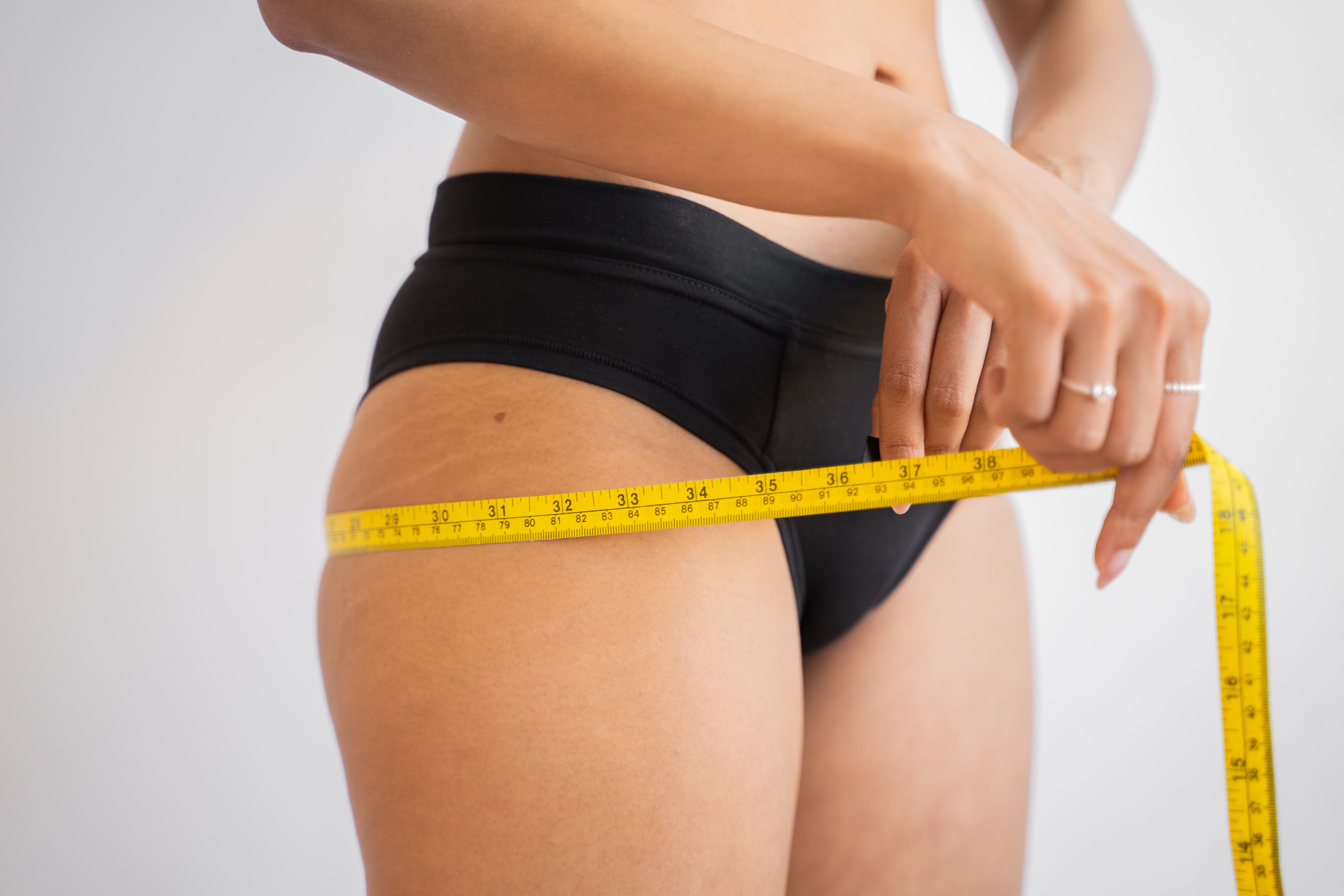How Dieting and Restrictive Eating Can Lead to Hormonal Imbalance in Women
Most women diet to lose weight, thinking that weight loss also leads to health. If we are honest with ourselves the main reason women wish to lose weight is to gain societal acceptance and improve self-esteem and self-worth. Going about weight loss in an unhealthy manner (even if you’re overweight) can lead to a whole host of hormonal imbalances that only lead to metabolic damage, weight gain and weight loss resistance in the future. You can read my article about dieting https://talidavoinea.au/5-health-consequences-of-dieting/ to find out more. There is clear evidence showing that nearly all restrictive diets cause thyroid damage and women’s reproductive hormones get thrown off in the process.

All diets involve some form of restriction either calorie restriction or a restriction of a certain food group (like fats or carbs) coupled with over-exercising. These diets may work well in the short term for weight loss but the effects on our reproductive hormones can be quite dramatic. I wanted to break down the effects of the main types of diets on our reproductive hormones.
Calorie-restrictive diets:
These are diets that restrict overall calorie intake so there is a calorie deficit. Although some forms of this diet may focus on whole foods, many people can achieve a calorie-deficient diet with unhealthy, nutrient-lacking food. Calorie-restrictive diets are also associated with obsessive tendencies to count calories and control total food intake which can lead to eating disorders and a general unhealthy relationship with food. Raw vegan, poorly done vegan diets, and raw TIL 4 diets can sometimes fall into this category as well (even if they aren’t weight loss diets). Points to consider:
• actively reduces the amount of thyroid hormones leading to long-term weight gain and weight resistance
• causes estrogen levels to drop dramatically from overall calorie restriction
• interferes with leptin production (hunger-suppressing hormone) which has been associated with loss of period and infertility
• lead to loss of period due to low calories
• lead to loss of ovulation and infertility
• result in hormone-induced loss of bone mass leading to osteoporosis
• this type of hormonal imbalance produces symptoms such as insomnia or difficulty sleeping, depression and constipation
Low Carb Diets: ( Keto, Atkins, etc)
These are by far the most popular weight loss diets today as there is little calorie restriction so women can feel satiated on this diet. Whole food versions of this diet may prove to be beneficial for women’s hormones in the short term, especially in recovery from insulin-resistant PCOS but will create problems in the long run. Points to consider:
• actively reduces thyroid hormones leading to long-term weight gain and weight resistance
• high meat and dairy diets raise estrogen levels and can lead to estrogen dominance
• loss of period
• loss of ovulation and infertility
• leads to hormone-induced fatigue and muscle weakness
• worsening of PMS and PMDD and menopausal symptoms
• increases risks of breast and ovarian cancer as well as other chronic diseases like heart disease and diabetes
• symptoms associated with this type of hormonal imbalance include anxiety, irritability, depression, vaginal dryness, sleep disturbances, and hot flashes
For a slightly more in-depth look at how low-carb diets affect our hormones, you can read my article on carbohydrates and hormones here: https://talidavoinea.au/how-carbohydrates-effect-womens-hormones/
Low-Fat Diets:
Low-fat diets sometimes go hand in hand with calorie-restrictive diets as fat is high in calories so is usually avoided. Others seek to lower their overall saturated fat intake for health reasons which often leads to an increase of sugary foods leading to hormonal imbalances. High-carb vegan diets Raw vegan diets and raw TIL 4 can fall into this category as well (even if they aren’t weight loss diets). Points to consider:
• actively reduces thyroid function leading to long-term weight gain and weight resistance
• deregulates the production of all hormones including estrogen, progesterone, and testosterone
• associated with an increase in sugary carbohydrates which can lead to insulin-resistant PCOS, insulin resistance and diabetes
• can lead to hormonal acne or poor skin health in some people
• can lead to fertility problems and problems with milk supply if breastfeeding
Read a little more about how high sugar diets can lead to hormone imbalance here https://talidavoinea.au/how-carbohydrates-effect-womens-hormones/
Over-exercise:
Although this isn’t a diet, over-exercising can have a similar effect on hormones as overall calorie restriction. Exercise is good and absolutely necessary for overall health but over-exercising adds significant stress to the body leading to a loss of periods for many women (especially young women).
How to stop dieting and improve your hormones:
The most important step is to break free of the yo-yo dieting habits. Every women’s intake of calories, carbs, fats, and protein is different and so it’s important to eat the amounts necessary for you.
• challenge the current societal ideals of beauty. Just because society glorifies fit and toned women with six-packs or slim women does not mean these women are healthy. In fact, a great many of them struggle with irregular periods, lack of periods and digestive issues. Although some women have increased muscle mass due to genetics and body type, most women need a body fat percentage of at least 20% or higher for adequate hormone production
• Challenge the false belief that self-esteem and self-worth is tied to weight and overall appearance. Self-worth is intrinsic.
• Address your triggers for emotional eating
• Shift the focus of eating from calories to whole foods and shift the focus from weight and appearance to health and wellbeing
• Eat an abundance of whole foods and ensure proper consumption of all food groups including carbs, proteins, and fats in the proportions that are right for you
• Do not overeat or undereat
• Count nutrients, not calories
• Focus on the foods you can have and keep exploring healthy foods to add to the diet (not restrict)
• Switch to gentler or moderate forms of exercise and don’t use exercise as punishment for bad eating
• Don’t overdo cardio exercises, make sure to add some weight training as well
• Learn to trust your body and eat intuitively in time. This might take a little patience but intuitive eating can be achieved once the above issues are addressed
I’ve written this article primarily as a response to many young women that are already at a healthy weight or more often are already underweight due to restrictive eating and dieting. These women reach out to me because they have lost their periods due to restrictive eating. Unfortunately, many women (young girls in particular) would rather sacrifice their health and emotional well-being to look good and stay thin. I know that reframing our perspective from “weight” to “health and well-being” is not as easy as I may have made it sound in my points above. In reality, it is a very difficult process that can take many years to achieve. This is why eating disorders are so incredibly difficult to overcome and why dieting becomes addictive. I have personally been naturally underweight all my life (I never dieted). I hated being skinny and was made to feel ugly for my weight. This damaged my self-esteem. Thankfully my health problems helped me understand that health is more precious than appearance but it took me many years into researching and understanding health to get me to this point.
For those that are reading my article and are overweight, I plan to write an article about healthy weight loss to accompany this post soon. I hope in some way my article can shine some perspective on why dieting is harmful to our health and encourage women to seek healthy sustainable long-term lifestyle choices that support hormones and fertility as well as a healthy weight.










